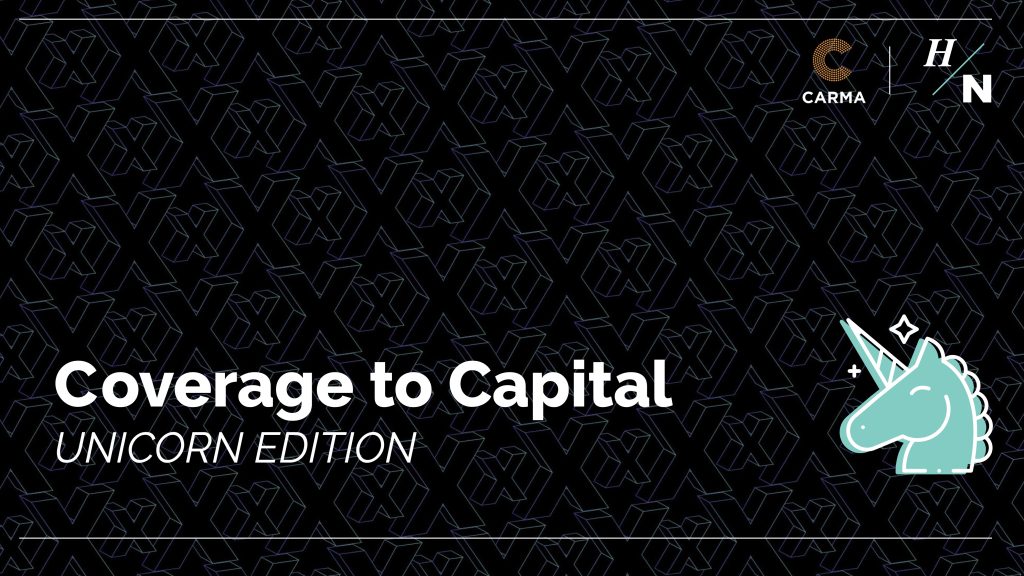The most-followed startup CEOs on Twitter and LinkedIn raise more capital on average than their less social-media savvy counterparts, according to new research from PR and marketing consultancy Hard Numbers and media intelligence firm CARMA.

The Coverage to Capital report looked at 64 startup unicorns in the UK, defined as privately-held companies which have achieved a valuation of more than one billion US dollars. The report analysed 65,194 media articles, over 10,000 LinkedIn and Twitter posts to offer a comprehensive study of the media profile of these businesses and their founders.
It reveals that unicorn companies whose founders have the largest number of LinkedIn followers secured over £763 million in total investment on average. This is over 20% more than the average total raised – £632 million – across the UK’s entire unicorn cohort.
The same trend was true on Twitter albeit resulting in a smaller difference of 5.4% – with the most-followed CEOs raising an average of £666 million in funding in total.
Post frequency on the real-time platform also correlated with fundraising success. Of those CEOs who use Twitter, the top five most active accounts raised more money in comparison to the rest – with an average of over £705m raised versus £534m raised by the remainder.
LinkedIn is the social media platform of choice for startup leaders. Just 6% of CEOs and founders at UK unicorns don’t use the business networking site, compared to 42% who don’t use Twitter.
On LinkedIn, the top five ‘most social’ unicorn CEOs were: 1. Ben Francis, Gymshark (367.5k followers / 93 posts), 2. James Watt,BrewDog (331.2k followers / 83 posts), 3. Timo Boldt, Gousto (25.1k followers / 62 posts), 4. Yoni Assia, eToro (23k followers / 53 posts) and 5. Orral Nadjari, British Volt (8.8k followers / 51 posts).
By comparison, the top five ‘most social’ CEOs on Twitter were: 1. Herman Narula, Improbable (10.1k followers / 97 posts), 2. YoniAssia, eTorro (46.9k followers / 53 posts), 3. Dr Gordon Sanghera, Oxford Nanopore Technologies (2.2k followers / 49 posts), 4. Greg Jackson, Octopus Energy (17.2k followers / 35 posts) and 5. James Watt, Brewdog (99.1k followers / 33 posts).
The research also looked at the impact of earned media coverage on unicorns’ fundraising efforts. It found that businesses that secured the largest sums of investment also had the most active CEOs and founders in terms of their presence within media coverage of their businesses.

The leaders of top tier unicorns – which raised an average of £1.4 billion – were featured in 23% of their company’s press coverage on average, compared with just 13% of leaders at mid-tier unicorns – which raised an average of £350.9 million – and only 14% of low tier unicorns – which raised an average of £130.8 million.
When looking specifically at CEO and founder profiles, 15 out of the top 20 were the most visible and active in earned media, andworked at the companies with the highest overall media presence.
The top five unicorn leaders with the largest earned media profile were: 1. John Lyttle, Boohoo (718 mentions / £59M raised), 2. Greg Jackson, Octopus Energy (683 mentions / £2.1BN raised), 3. James Watt, BrewDog (535 mentions / £296.7M raised), 4. Alex Chasterman OBE, Cazoo (339 mentions / 241.9M raised) and 5. Anne Boden, Starling Bank (335 mentions / 905.6M raised).
Darryl Sparey, Managing Director and Co-Founder of Hard Numbers, said: “There’s a prevailing wisdom that a CEO or founder has a key role to play in “storytelling” for their business – so we put this theory to the test. Our findings demonstrate that successful leaders are indeed those that paint a picture of the future for investors and customers alike. Unicorn CEOs and founders who command the largest media profile were more successful at raising capital than those who were less active. This tells us that investors want to align themselves with leaders that have a clear and compelling story to tell. And when the story resonates, investor buy-in is more likely.”
Richard Bagnall, Co-Managing Partner of CARMA, said: “Our analysis demonstrates a clear correlation between successful fundraising for unicorn businesses and the respective profile of their CEO or founder across traditional and social media channels. It provides timely insights for startup marketing teams in an increasingly volatile investor market, showcasing the commercial importance of the ‘personal brand’ at a time when raising capital is harder than ever before.”
For more information, you can download a copy of the report here.
Source: Hard Numbers


You must be logged in to post a comment Login